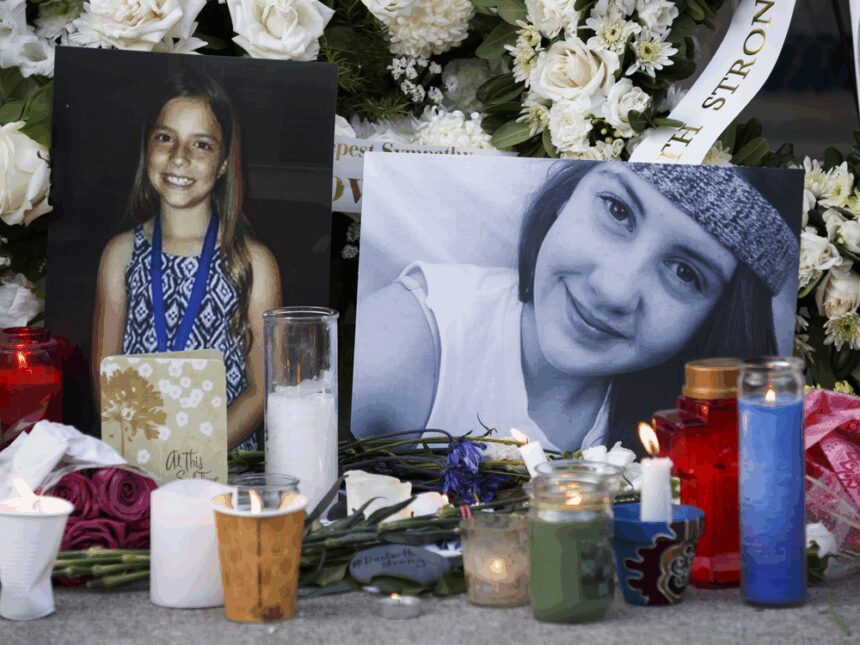In a landmark decision that reverberated through Toronto’s legal and community circles this week, the Ontario Superior Court certified a class-action lawsuit against American gun manufacturer Smith & Wesson. The suit stems from the tragic 2018 Danforth Avenue shooting that left two dead and 13 injured, forever changing the fabric of one of our city’s most beloved neighborhoods.
As someone who’s walked the vibrant stretch of the Danforth countless times, covering everything from Greek food festivals to local business profiles, seeing this legal development brings back memories of reporting during those dark days following the shooting.
The lawsuit, initially filed by victims and their families in 2019, cleared a significant hurdle when Justice Paul Perell certified it to proceed as a class action. At its core, the legal action alleges Smith & Wesson failed to implement available safety technology that could have prevented unauthorized use of the weapon used in the attack.
“This certification represents a critical step toward accountability,” said Patrick McLeod, a lawyer representing the victims, during our phone conversation yesterday. “It acknowledges that gun manufacturers have responsibilities beyond merely producing their products.”
The .40-calibre handgun used in the Danforth shooting was allegedly stolen from a Saskatchewan gun shop years before the tragedy. According to court documents I reviewed, the plaintiffs argue this theft could have been rendered meaningless had the weapon been equipped with authorized-user technology – commonly known as “smart gun” features.
The Toronto Police Service reported that the Danforth shooter, Faisal Hussain, died by suicide after his rampage. While his family later issued statements regarding his struggles with mental health issues, questions about how he obtained the weapon have remained central to the case.
Data from Statistics Canada shows that while Canada’s gun violence rates remain significantly lower than our southern neighbors, Toronto experienced 490 shootings in 2019, a troubling trend that community advocates have been working tirelessly to address.
Ken Price, whose daughter was injured in the shooting and who now serves as a spokesperson for the victims’ group, told me during our coffee meeting at a Danforth café last month: “This isn’t just about compensation. It’s about changing industry standards to prevent future tragedies.”
The certification allows the lawsuit to move forward with claims including negligence and public nuisance against the American gun manufacturer. Smith & Wesson has consistently denied any wrongdoing, arguing that they cannot be held responsible for criminal misuse of their products.
Legal experts I’ve consulted suggest this case could set precedent in Canadian courts regarding corporate responsibility in the weapons industry. Professor Martha Collins from York University’s law department explained, “This certification signals the court’s willingness to at least hear arguments about manufacturer liability in ways we haven’t seen previously in Canada.”
Walking through the Danforth neighborhood yesterday, I was struck by how the area has both healed and remained forever changed. Memorial plaques blend seamlessly with bustling restaurant patios. The resilience of this community mirrors Toronto’s broader spirit – moving forward while never forgetting.
For local business owners like Dimitri Alexopoulos, who’s operated his family restaurant on the Danforth for three decades, the legal development brings mixed emotions. “We want justice, of course,” he shared while preparing for the dinner rush. “But mostly we want safety. No community should experience what we did.”
The certified lawsuit seeks damages reportedly exceeding $150 million, but perhaps more significantly, it asks the court to require Smith & Wesson to implement smart gun technology in all new weapons.
According to court filings, the plaintiffs allege Smith & Wesson had actually promised the U.S. government it would incorporate such safety features back in 2000, but later abandoned those plans after industry backlash.
The Canadian Coalition for Gun Control‘s spokesperson Maya Rodriguez emphasized during our interview that “this case represents an important conversation about reasonable safety standards in weapon manufacturing, separate from broader gun control debates.”
As this case progresses through our legal system, it highlights Toronto’s complicated relationship with gun violence – a city proudly distinct from American gun culture yet still grappling with periodic tragedies that shake our collective sense of safety.
The certification of this lawsuit doesn’t guarantee the plaintiffs will ultimately prevail, but it ensures their day in court to argue that gun manufacturers should bear some responsibility for how their products are used – or misused – in society.
For the families of Reese Fallon and Julianna Kozis, the two young victims who lost their lives that summer night, and for those who still carry physical and emotional scars, this legal milestone offers a path toward the accountability they’ve sought for nearly six years.
As Toronto continues healing and growing, this case reminds us that the pursuit of justice moves at its own pace, sometimes slow but nevertheless steadily forward.







